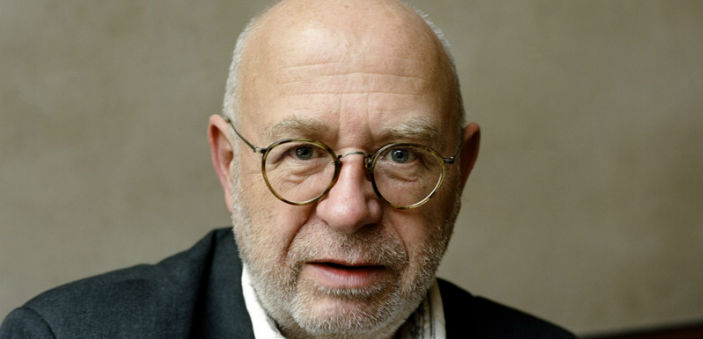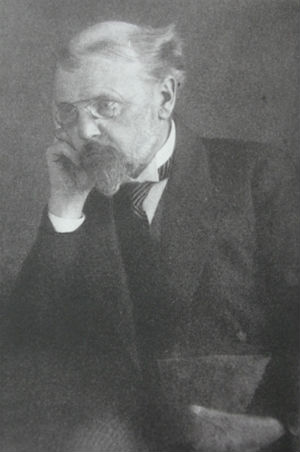‘Lepsius 1915’in Almanların da başını yakacağına inanıyordu’


Almanya Parlamentosu’nun 2 Haziran günü kabul ettiği Ermeni Soykırımı Tasarısı’nın tam metnini dikkatlice okuyanlar, metinde bir isimle karşılaştılar: Johannes Lepsius. Dönemin Alman parlamento üyelerini ve ülke basınını Osmanlı topraklarında yaşanan katliamlar konusunda uyarmak isteyen Teolog Lepsius’un çalışmaları, Alman görevlilerin katliamlardan haberdar olduğunu ama buna göz yumduklarını göstermek için tasarı metninde örnek olarak gösterildi:
"Alman İmparatorluğu da Osmanlı İmparatorluğu’nun askeri baş müttefiki olarak bu sürece derinden dahildi. Alman İmparatorluğu’nun gerek siyasi gerekse askeri yönetimi ta başından beri Ermenilerin tehciri ve katledilişi konusunda bilgi sahibiydi. Protestan din adamı Dr. Johannes Lepsius, 5. Ekim 1915’te Almanya Parlamentosu’nda Temmuz/Ağustos 1915’te İstanbul’da yaptığı araştırmaların sonuçlarını sunduğunda, konu o dönemin Alman yönetimi tarafından tamamen sansürlendi. Aynı şekilde Lepsius’un doğrudan milletvekillerine yolladığı ‘Türkiye’de Ermeni Halkının Durumuna İlişkin Rapor’u da 1916’da Alman askeri sansür kurulu tarafından yasaklanarak rapora el kondu ve milletvekillerine ancak 1919’da Birinci Dünya Savaşı’nın sonunda teslim edildi.”
Bugün Lepsius’un çalışmaları Almanya’nın Potsdam kentindeki ‘Lepsius Evi’ çatısı altında devam ettiriliyor. Bu ev aynı zamanda Johannes Lepsius’un 1926’daki ölümüne dek çalışmalarının büyük bir bölümünü tamamladığı yer. Lepsius Evi’nin Direktörü Rolf Hosfeld’le, Lepsius’un çalışmalarının Alman toplumunun bugün yaşadığı kabullenişe etkisinden, Ermeni Soykırımı’nda Alman sorumluluğuna uzanan geniş bir söyleşi yaptık.

Alman teolog Lepsius.
Alman Parlamentosu’nda kabul edilen soykırım tasarısının metninde adı geçen Johannes Lepsius kimdir, kendisinin Ermeni Soykırımı’yla alakası nedir?
Johannes Lepsius 1896’da yayınladığı ve daha sonra birçok dile çevrilen ‘Ermenistan ve Avrupa’ kitabından dolayı bu konuda Avrupa’nın önde gelen kişilerinden biriydi. Bu kitap ‘Hamidiye Katliamları’nı anlatan en etkileyici eserlerden biri olarak da kabul edilir. Kendisi aynı yıl içinde Ermenilere yardım amaçlı bir çalışma da başlattı ve Ermeni sorunu konusunda o dönem Almanya’nın önemli uzmanlarından biri haline geldi. Lepsius’un Rusya, Almanya, Bab-ı Ali ve Ermeni temsilcileri arasında geçen 1913 reform müzakerelerinde yürüttüğü diplomatik girişimlerse oldukça iyi bilinir. Lepsius 1915’te Ermenilere yapılan katliamın haberlerini duyunca İstanbul’a gidip konuyla ilgili Alman Dışişleri Bankalığı tarafından da desteklenen Enver Paşa’yla bir görüşme yapmış. Bu görüşme Franz Welfel’in ‘Musa Dağında Kırk Gün’ kitabında da yer alır. Enver Paşa’nın, “Bizler iç düşmanlarımızla başa çıkabiliyoruz, siz ise Almanya’da bunu başaramıyorsunuz. Bu konuda sizden daha güçlüyüz” diye konuştuğu bu olağandışı toplantının arka planı daha halen tüm detaylarıyla netleşmiş değildir. Muhtemelen, Alman Dışişleri Bakanlığı’nda Lepsius’u destekleyen ve desteklemeyen kişiler vardı. Lepsius elindeki bilgilerle Berlin’e döndüğündeyse bu ikinci grup egemen oldu.
“Sorun sadece gerçeklerin ve faillerin niyetinin bilinmesi değil, bir yüzyıl boyunca süren sessizlik ve Birinci Dünya Savaşı sırasında yürütülen dezenformasyon kampanyası... Lepius daha 1915’te, bu susturma girişimlerinin ahlaki bir felakete neden olacağını ve bunun uzun vadede Almanların da başını yakacağına inanıyordu.”
Tasarı metninde Lepsius’un dönemin Alman parlamento üyelerine gönderdiği bir mektuptan ve yine kendisinin hazırladığı geniş bir rapordan bahsediliyor. Bu örnekler, Almanların Ermenilere yapılan katliamlardan haberdar olduğunu göstermek için verilmiş. Lepsius’un bu araştırmalarına geleceğiz ancak öncesinde, dönemin Alman resmi görevlilerin konuyla ilgili ne kadar bilgisi olduğundan bahsedebilir misiniz?
Nerdeyse her şeyi biliyorlardı. 1915’te, o dönem Osmanlı topraklarında yaşananlarla ilgili tanık olduklarını, Alman İmparatorluğu’nun İstanbul Büyükelçiliği’ne ve Berlin hükümetine rapor eden yeteri kadar Alman vardı. Alman Dışişleri Bakanlığı’nın arşivleri bu konuda detaylı raporlarla dolu… Bulgular o kadar barizdi ki Alman Büyükelçi 7 Temmuz 1915’te Berlin’deki amirlerine Osmanlı hükümetinin niyetinin hiç şüphesiz “Türk İmparatorluğu’nda Ermeni ırkını yok etmek” olduğunu yazar. Bunlar anlamı açık olan sözlerdir ve Bundestag’ın bu olaylardan 101 sene sonra kabul ettikleriyle aynı anlamı taşır. Sorun sadece gerçeklerin ve faillerin niyetinin bilinmesi değil, bir yüzyıl boyunca süren sessizlik ve Birinci Dünya Savaşı sırasında yürütülen dezenformasyon kampanyası... Lepius daha 1915’te, bu susturma girişimlerinin ahlaki bir felakete neden olacağını ve bunun uzun vadede Almanların da başını yakacağına inanıyordu.
Lepsius’un sözü geçen mektubundan ve raporundan bahsedebilir misiniz? Lepsius bu çalışmaları neden ve hangi bağlamda yaptı?
Lepsius, ülkesinin bu kadar aşırıya gitmesini istemiyordu ve bu yüzden sesini yükseltmişti. Konuyla ilgili Alman basınını Ekim 1915’te bilgilendirdi, ama Dışişleri Bakanlığı basına ya sessiz kalması ya da resmi Osmanlı bildirilerini yayınlaması gerektiğini emretti. Sosyal Demokrat Milletvekili Karl Liebknecht Ocak 1916’da Osmanlı’nın kırım politikalarını kınamak için Alman Parlamentosu’nda ondan bahseder. 1916 ilkbaharında Lepsius gizlice 300 sayfalık ‘Türkiye’de Ermeni Halkının Durumu Raporu’ başlıklı çalışmasını yayınladı, askeri sansüre rağmen 20 bin 500 kopya Alman İmparatorluğu’nda dağıtıldı. Bu durum açık ve güçlü bir sivil cesaret örneği oldu. Bundan sonra ülkeyi terk edip savaşın geri kalanını tarafsız olan Hollanda’da geçirir ve ‘Rapor’ çalışmasının Felemenkçe çevirisini yayınlar. Savaştan sonra New York Tribune gazetesi bu ‘Rapor’u savaş boyunca oluşturulmuş, “Türkiye’nin Ermenistan’daki suçlarının en güçlü iddianamesi” olarak tanımlar ve Kanadalı tarihçi Ulrich Trumpener de bu kitabı on yıllar sonra bile Ermeni Soykırımı üzerine en iyi çalışma olarak görür. Bu arada, söz konusu kitap Lepsius’un 1926 yılındaki ölümüne kadar yaşadığı Potsdam’daki Lepius Evi’nde yazılmıştı.
Peki, Almanya’nın Ermeni Soykırımı’nda sorumluluğu var mı?
Bazı bilim adamları 20 yıl önce bile buna açık bir “Evet” yanıtı vermişti. Bugün tarihçiler daha çok çelişkilerle ilgileniyor. Enver Paşa’nın İstanbul’da yaşayan genç arkadaşı Yüzbaşı Hans Humann, Ermenilerin yok edilmesi için “Zor, ama yararlı” ifadelerini kullanır. Kendisi zaten Pan-Cermenist bir ırkçıydı. Diğer taraftan, Almanların ulusalcı-muhafazakâr Genelkurmay Başkanı Paul von Hindenburg katliamlar için “İnsanın içindeki yaratığın uyanması” der ve bu olayları “Tüm uluslar ve zamanlar için tarihin en karanlık bölümlerinden biri” olarak ifade eder. Fakat kendisinin asıl amacı her koşulda savaşı kazanmak olduğu için bu suçlara göz yumdu. Amerikalı tarihçi Isabel Hull durumu şöyle anlatır: “Kendisinin yaşadığı varoluşsal askeri mücadelenin standartlarını, askerlerine, sivillere ve işgal bölgelerine uygulayan Almanya, bunu Türkiye üzerinde de uygulamıştı ki bu durum orada aşırılaşıp soykırım şeklini aldı.”
Alman Parlamentosu’nun kanun tasarısı sizin için ne ifade ediyor? Lepsius Evi’nin çalışmalarının, Alman parlamentosunun yaptığı bu kabullenmeye katkısı ne düzeyde olmuştur?
Senelerden beri bunun için çalıştık ve çalışmalara destek verdik. Birkaç sene önce hayatını kaybeden arkadaşımız Hermann Goltz, Ermeni Soykırımı hakkında Alman Parlamentosu’ndaki 2005’te yapılan tartışmayı başlatan kişiydi. Uluslararası konferanslar, toplantılar, tartışmalar organize edip makaleler ve kitaplar yayımladık. Bu konuyu Potsdam Üniversitesi’ndeki ve liselerdeki derslere dâhil ettik. Geçtiğimiz sene dünyada yüzden fazla yerde yapılan Berlin Uluslararası Edebiyat Festivali işbirliğiyle ‘Dünya Çapında Ermeni Soykırımı Anması Okumaları’nı düzenledik. Bu yüzden uzun zaman sonra olsa da Bundestag’da bunun sonucunu aldığımız için mutluyuz. Tasarıyı Türkiye’ye karşı suçlama olarak değil tarihi gerçeklerin ortaya çıkması için bir katkı olarak görüyoruz. 20. yüzyıl devlet şiddetinin yüzyılıydı. Bu yüzyılda öne çıkan suç tabii ki Holokost yani Avrupa Yahudilerinin imhasıydı. Uzlaşma için gerçeğe ihtiyaç vardır. Diğer yandan şiddetinin inkârı, arkadaşımız Fatma Müge Göcek’in ortaya koyduğu gibi, kolaylıkla şiddetin devamına öncülük edebilir. İşte bu Ermeni Soykırımı’nın ve diğer tüm devlet destekli şiddet olaylarının tanınmasının neden önemli olduğunun da temel sebebidir. Eğer daha barışçıl ve demokratik bir geleceğe bakmak istiyorsak, geçmişimizin resmi güvenilir olmalı. Ermeni Soykırımı’na Avrupa ortak tarihinin karanlık kısmı olarak bakmayı öğrenmemiz gerekiyor.


